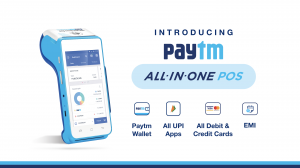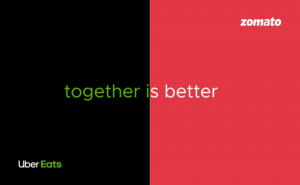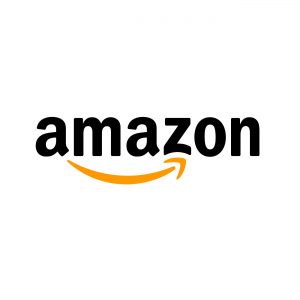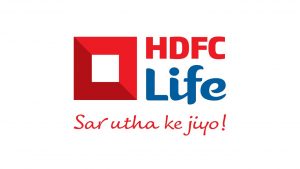 Reliance General Insurance Company Limited has launched a comprehensive health insurance plan named “Reliance Health Infinity”. The policy offers 90 days pre and 180 days post hospitalization cover, along with sum insured ranging from Rs 3 lakh to Rs 1 crore, and free restore benefits. This Insurance offers three main benefits under its Health Infinity plan: ‘more cover’, where the policyholder will get additional sum insured, along with ‘more time’, where the policyholder will get covered for additional period, and ‘more global’ wherein the policyholder will be insured not only in India but also globally for emergency hospitalization. This insurance plan also offers Ayush benefit, wherein all the expenses incurred are covered on treatment in a hospital under Ayurveda, Unani, Sidha and Homeopathy. Reliance General Insurance Company Limited has launched a comprehensive health insurance plan named “Reliance Health Infinity”. The policy offers 90 days pre and 180 days post hospitalization cover, along with sum insured ranging from Rs 3 lakh to Rs 1 crore, and free restore benefits. This Insurance offers three main benefits under its Health Infinity plan: ‘more cover’, where the policyholder will get additional sum insured, along with ‘more time’, where the policyholder will get covered for additional period, and ‘more global’ wherein the policyholder will be insured not only in India but also globally for emergency hospitalization. This insurance plan also offers Ayush benefit, wherein all the expenses incurred are covered on treatment in a hospital under Ayurveda, Unani, Sidha and Homeopathy. |
 Paytm has launched an Android POS device for small and medium businesses (SMEs) & merchant partners. The android based device will enable the merchants to accept payments in various ways like debit and credit cards, Paytm Wallet, UPI-based apps and cash. The device provides the merchants with the facility of producing GST compliant bills, to manage transactions and settlements through ‘Paytm for Business’ app. These services will increase the importance of digital payments in the business of small and medium businesses (SMEs) & merchant partners and will also bring to them the advantages of the digital economy. Paytm has launched an Android POS device for small and medium businesses (SMEs) & merchant partners. The android based device will enable the merchants to accept payments in various ways like debit and credit cards, Paytm Wallet, UPI-based apps and cash. The device provides the merchants with the facility of producing GST compliant bills, to manage transactions and settlements through ‘Paytm for Business’ app. These services will increase the importance of digital payments in the business of small and medium businesses (SMEs) & merchant partners and will also bring to them the advantages of the digital economy. |
The key features of the Android POS device are:
|
|
|
 Google announced a 1-million USD grant to promote news literacy among Indians. According to Google, the grant will work towards building a strong network of senior reporters and journalists, who will counteract fake news in India. The funding support is part of Google’s broader, $10-million commitment to media literacy. Google’s initiative will focus on delivering news literacy, especially in non-metro cities. Under the programme, Internews will put together a team of 250 journalists, fact-checkers, academicians, and NGO workers, who will be trained by global and Indian experts in a curriculum adapted to local needs and available in seven Indian languages. Google announced a 1-million USD grant to promote news literacy among Indians. According to Google, the grant will work towards building a strong network of senior reporters and journalists, who will counteract fake news in India. The funding support is part of Google’s broader, $10-million commitment to media literacy. Google’s initiative will focus on delivering news literacy, especially in non-metro cities. Under the programme, Internews will put together a team of 250 journalists, fact-checkers, academicians, and NGO workers, who will be trained by global and Indian experts in a curriculum adapted to local needs and available in seven Indian languages. |
 Gurgaon-based Food delivery startup and restaurant aggregator “Zomato” has announced the acquisition of Uber Eats business in India. Uber Eats is an Uber Technologies Inc’s food delivery business in India. The acquisition was done in an all-stock deal. The deals provides Uber with the 9.99% ownership in Zomato after the acquisition. The deal is estimated to be pegged at $300-350 million. Uber Eats, having about 26,000 restaurant partners entered the food delivery business in 2017 in India. Gurgaon-based Food delivery startup and restaurant aggregator “Zomato” has announced the acquisition of Uber Eats business in India. Uber Eats is an Uber Technologies Inc’s food delivery business in India. The acquisition was done in an all-stock deal. The deals provides Uber with the 9.99% ownership in Zomato after the acquisition. The deal is estimated to be pegged at $300-350 million. Uber Eats, having about 26,000 restaurant partners entered the food delivery business in 2017 in India. |
 The global e-commerce firm, Amazon has announced the incremental investment of USD 1 billion in India. The investment will have the prime objective of digitising the small and medium businesses (SMB’s) in India. The firm has also announced its plans to boost its size and scale by exporting worth USD 10 billion of ‘Make in India’ goods by year 2025. The global e-commerce firm, Amazon has announced the incremental investment of USD 1 billion in India. The investment will have the prime objective of digitising the small and medium businesses (SMB’s) in India. The firm has also announced its plans to boost its size and scale by exporting worth USD 10 billion of ‘Make in India’ goods by year 2025. |
 Adani Ports and Special Economic Zone Ltd (APSEZ), India’s largest private sector port operator, has agreed to buy a 75% stake in Krishnapatnam Port Co. Ltd (KPCL) at an enterprise value of Rs 13,572 crores. The Krishnapatnam Port is located in southern Andhra Pradesh and is a multi-cargo facility. It handled 54 million tonnes (mt) of cargo in the year ended 31 March 2019. The purchase will accelerate Adani Ports’ plan to expand its cargo-handling capacity to 400mt by 2025. Adani Ports and Special Economic Zone Ltd (APSEZ), India’s largest private sector port operator, has agreed to buy a 75% stake in Krishnapatnam Port Co. Ltd (KPCL) at an enterprise value of Rs 13,572 crores. The Krishnapatnam Port is located in southern Andhra Pradesh and is a multi-cargo facility. It handled 54 million tonnes (mt) of cargo in the year ended 31 March 2019. The purchase will accelerate Adani Ports’ plan to expand its cargo-handling capacity to 400mt by 2025. |
| Source: The Business Standard |
 Ministry of Commerce and industry has announced that 371 items from China will get strict restriction from March 2020. The move aims at curbing imports of non-essential items such as plastic goods, toys, furniture, sports. Ministry of Commerce and industry has announced that 371 items from China will get strict restriction from March 2020. The move aims at curbing imports of non-essential items such as plastic goods, toys, furniture, sports. |
|
|
 Government of India misses its disinvestment target as the plan to sell Bharat Petroleum Corporation Limited (BPCL), Air India and Container Corporation of India has not been succeeded. Government of India misses its disinvestment target as the plan to sell Bharat Petroleum Corporation Limited (BPCL), Air India and Container Corporation of India has not been succeeded. |
|
|
 The prices of Darjeeling Tea that recently received GI tag has fell by 20% to 25% due to unchecked flow of Nepal Tea into the country. The prices of Darjeeling Tea that recently received GI tag has fell by 20% to 25% due to unchecked flow of Nepal Tea into the country. |
|
|
|
 HDFC Life Insurance has partnered with Paytm to expand its distribution. The partnership is aimed to enable customers of Paytm to purchase insurance products from HDFC Life. HDFC Life Insurance is constantly exploring opportunities to create and sustain new partnerships to strengthen its distribution network. With the partnership, HDFC Life Insurance aims to increase insurance penetration in India and to simplify the customers experience right from the purchase to the claim process. HDFC Life Insurance has partnered with Paytm to expand its distribution. The partnership is aimed to enable customers of Paytm to purchase insurance products from HDFC Life. HDFC Life Insurance is constantly exploring opportunities to create and sustain new partnerships to strengthen its distribution network. With the partnership, HDFC Life Insurance aims to increase insurance penetration in India and to simplify the customers experience right from the purchase to the claim process. |
| Source: The Economic Times |
You need to login to perform this action.
You will be redirected in
3 sec
